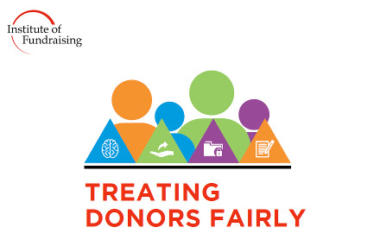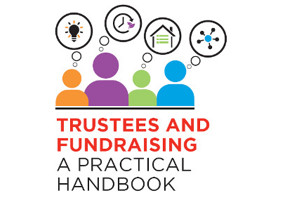The Institute of Fundraising has issued new guidance making it clear how fundraisers should interact when dealing with vulnerable people.
The guidance, Treating Donors Fairly, says that a fundraiser should be aware of whether an individual appears vulnerable, and offer them a cooling off period or more time before taking a donation. If the fundraiser believes the individual lacks the mental capacity to make a decision, they must not take a donation.
The guide says fundraisers should take care if an individual is disabled, has learning difficulties or medical conditions, is facing stress or anxiety, does not speak English as a first language, or is under the influence of alcohol or drugs.
The guide includes a 13-point checklist of features which could show that someone is vulnerable. It says that a fundraiser should take care if a potential donor is:
- Asking irrelevant and unrelated questions, or displaying signs of forgetfulness?
- Unable to read and understand the information they are provided with, and asking for it to be continually repeated?
- Responding in an irrational way to simple questions?
- Saying ‘yes’ or ‘no’ at times that it is clear they haven’t understood?
- Taking a long time or displaying difficulty in responding to simple questions or requests for information?
- Repeating simple questions such as ‘who are you’, ‘what charity is it’ and ‘what do you want’?
- Wandering off the subject at hand and making incongruous statements?
- Saying that they are not well or not in the mood to continue?
- Displaying signs of ill-health like breathlessness or making signs of exasperation or discontent?
- Giving a statement such as ‘I don’t usually do things like this, my husband/wife/son/ daughter takes care of it for me?’
- Indicating in any way that they are feeling rushed, flustered, or experiencing a stressful situation?
- Having trouble remembering relevant information, for example that they are already a regular donor to that charity or have recently donated?
- Donating an unexpectedly large gift with no prior relationship?
The guide calls on fundraisers to be respectful, responsive, fair and accountable when fundraising.
Peter Lewis, chief executive of the IoF, said: “Fundraisers do an amazing job, especially during the festive season, raising millions of pounds for good causes. They inevitably come into contact with people in vulnerable circumstances and need support to be able to recognise these situations, and know how to respond appropriately when they arise. I am delighted that we’ve launched this updated practical guide today which offers precisely this support.”
Related articles












